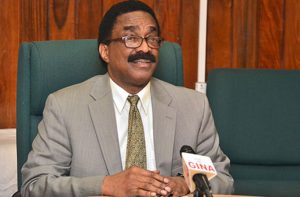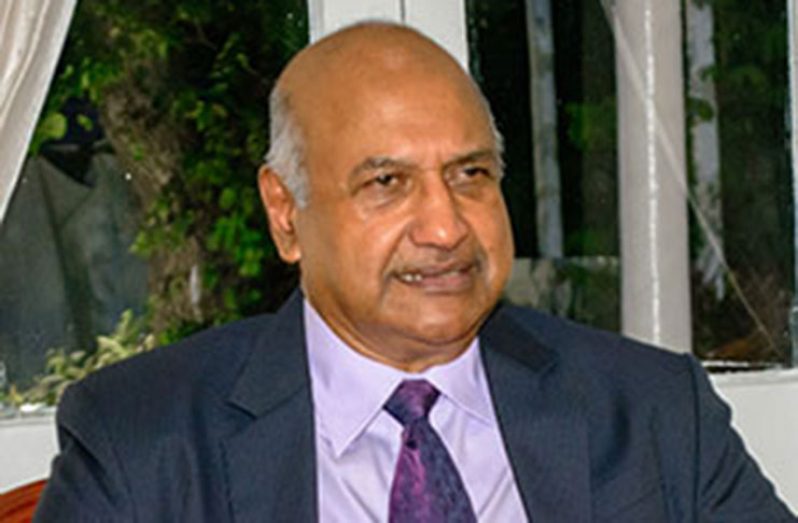WHILE the High Court Amendment Bill of 2005 gives the Chancellor of the Judiciary ultimate authority over the local judiciary, Attorney General Basil Williams believes there is need to restore the balance of power within the system.“My own belief is that for agreements to be reached under Article 127 of our Constitution in respect to our offices, you need to restore that balance. It is something worth fighting for in each office”, the Attorney General and Minister of Legal Affairs said during a press briefing on Friday afternoon.

In a press statement read by Williams, he said that, in 2005, the former People’s Progressive Party/Civic (PPP/C) Administration had used its majority in the National Assembly to secure the passage of the High Court (Amendment) Bill No. 15 of 2005. Former President Bharrat Jagdeo later assented to the amendment legislation, and it was passed into law.
According to the press statement, the move by the PPP/C government resulted in the removal of the division of the administrative powers which existed between the offices of the Chief Justice and the Chancellor, and subsequently consolidated all those powers in the office of the Chancellor.
“In effect, the PPP/C created the only dictatorship in the Judiciary in the Commonwealth Caribbean”, the statement said.
It said that the Chancellor would have absolute control of a matter — from the Magistrates’ Court to the Court of appeal; and the Chancellor could sit on a case in which he/she had influenced the appointment of the magistrate or judge. In addition, the Chancellor, as head of the Judicial Service Commission (JSC), has influential and direct control in the appointment of magistrates and judges, except in regard to the Chief Justice.
Former Opposition Leader Robert Corbin had written to then President Jagdeo in July 2007 on the issue, deeming the passage of the legislation and resultant shifting of powers a crisis.
“Your next step was, in November 2005, to introduce the High Court (Amendments) Bill of 2005 without consultation with, or even notification of, either the opposition or the Guyana Bar Association”, Corbin said in the letter.
The PNC/R leader at the time informed Jagdeo that the concerns expressed by the then President of the Guyana Bar Association to Corbin’s letters to Jagdeo, and the various public statements by the party and others on the subject, appeared to have been disregarded by the former President.
“Your single-minded determination to give all judicial and administrative powers to Justice Carl Singh, even across the divide between the High Court and the Court of Appeal, has created a terrible crisis of respect for the judiciary”, he had said.
Corbin had proposed consensus on the matter, but the Jagdeo Administration had turned a blind eye on the issue.




.jpg)








